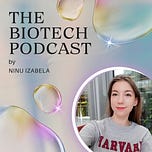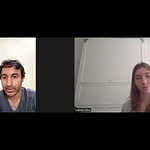Context
Tom Leung's road into founding BenchSci started with a deep passion for biology: first, for being a medical doctor during university, translating into research. He finished his Master's in Virology and did his PhD in Epigenetics.
BenchSci came from one of those common frustrations in the research world to get decent antibodies for your experiment. For Tom, this had meant just the theory of resources and time wasted on antibodies that were ineffective. He thus envisioned a database that could offer publication usage data on commercially available antibodies to the researchers in order for them to tell what works and what doesn't.
But of course, it is not without its challenges to go from academia into entrepreneurship. Tom had to learn how to build a company from scratch. Teaming up with other people who could code was acquaintance-building, really no different from collaborations in research. However, with hard work and creative problem-solving, BenchSci quickly took flight into the science circles. The BenchSci platform, when combined with AI, has created a positive impact on catalyzing drug development times due to the fact that both project duration and resources devoted to preclinical trials have greatly reduced.
What we discussed
Our conversation revolves around BenchSci, focused on helping researchers design experiments, particularly in molecular and preclinical research. Tom discusses the company’s evolution from aiding scientists in finding antibodies to leveraging AI and knowledge graphs to enhance research efficiency. His team utilizes large language models (LLMs) to assist users in connecting biological data and designing appropriate studies. Our dialogue also touches on the his background in epigenetics and the current landscape of research opportunities in that field, especially in relation to plant studies, while providing insights into educational paths in Canada and the U.S.
Main Asked Questions
What role does AI play in experiment design at the company?
AI is used to synthesize information from various biological databases and knowledge graphs, allowing researchers to ask specific questions and receive grounded, accurate responses.
How does the company ensure the accuracy of the information provided by its AI?
The company grounds AI responses in reliable data by integrating standardized information from various ontologies and databases, which helps reduce inaccuracies.
What opportunities exist for research in epigenetics, particularly in plants?
While the Tom’s focus has been on animal cells, he mentions that there are many labs in Toronto working on epigenetics, suggesting that students can find relevant opportunities, especially at the University of Toronto.
What are the educational pathways for someone interested in pursuing research in epigenetics?
Students are encouraged to pursue internships in research labs and consider university programs that offer hands-on research opportunities, with a specific mention of potential programs at the University of Toronto.
Key Insights
BenchSci has evolved to leverage AI and knowledge graphs for enhancing research design and hypothesis discovery.
The focus is on providing end-to-end solutions that connect users with necessary resources, like antibodies and protocols.
Large language models are utilized to synthesize information and ground AI responses in factual data, reducing inaccuracies.
Tom’s background in epigenetics highlights the potential for research in this field, particularly regarding reversible genetic modifications.
There are ample research opportunities in Toronto, especially at the University of Toronto, for students interested in epigenetics.
Thank you so much Tom for your time and this amazing conversation!





